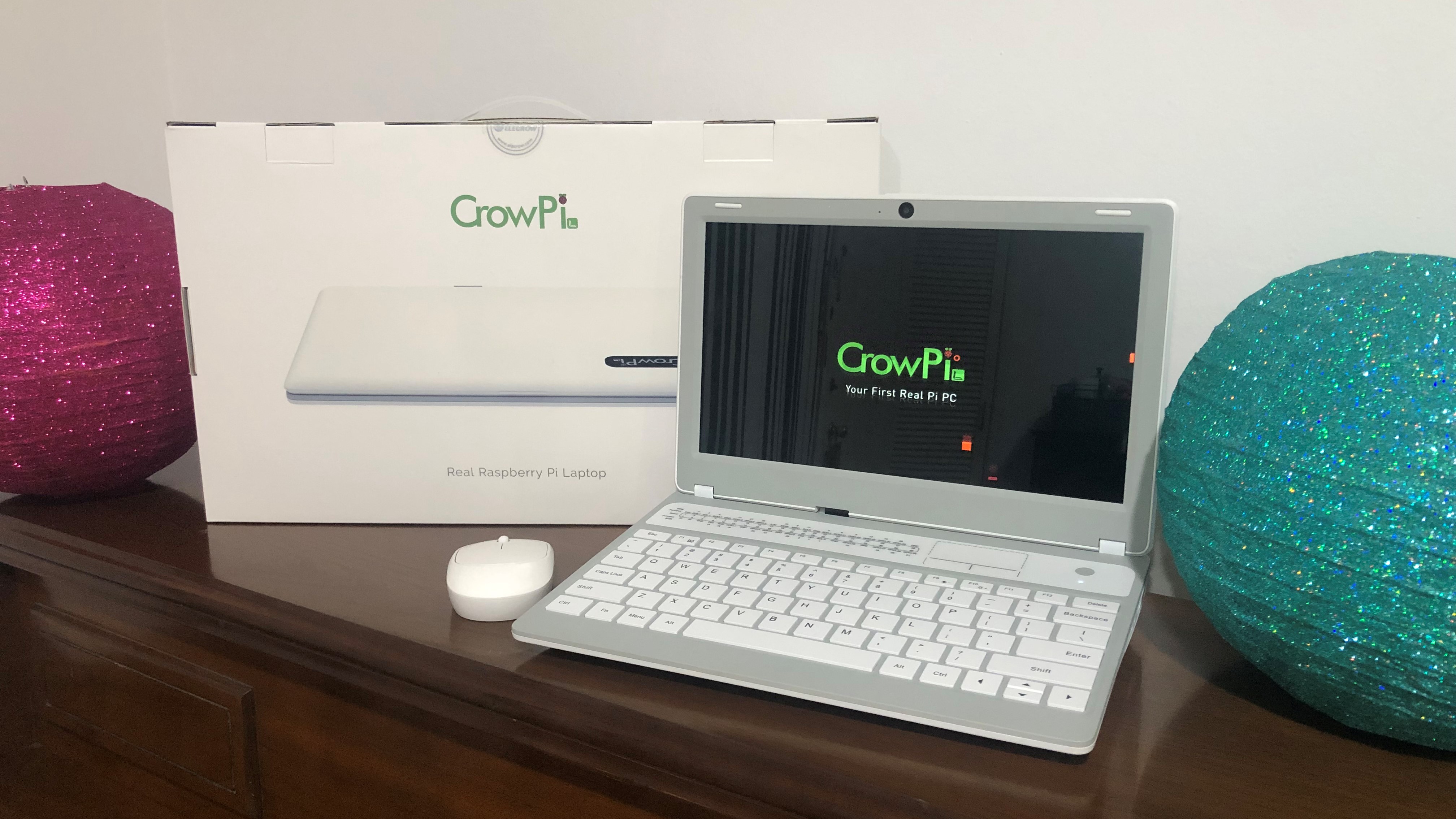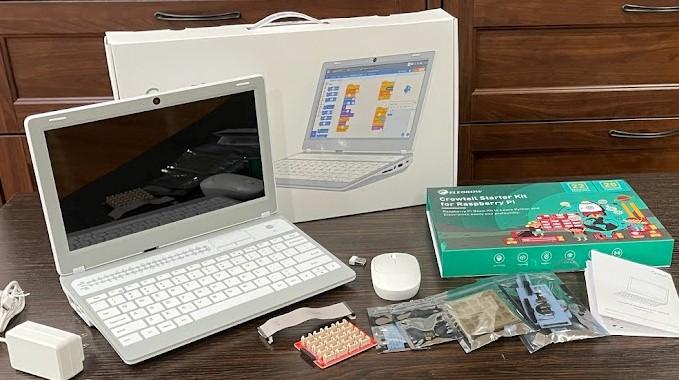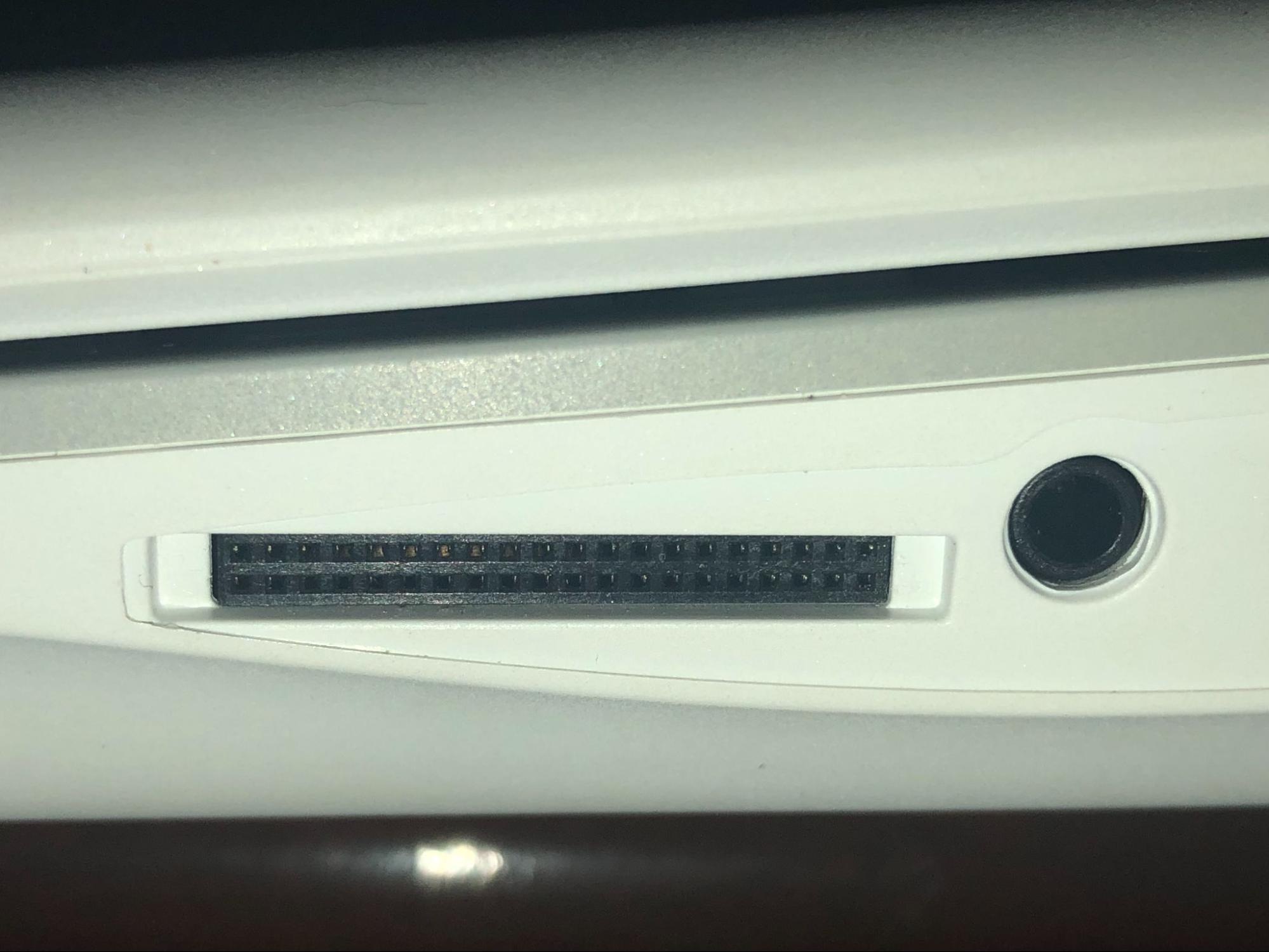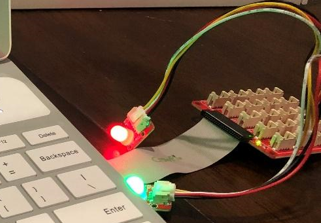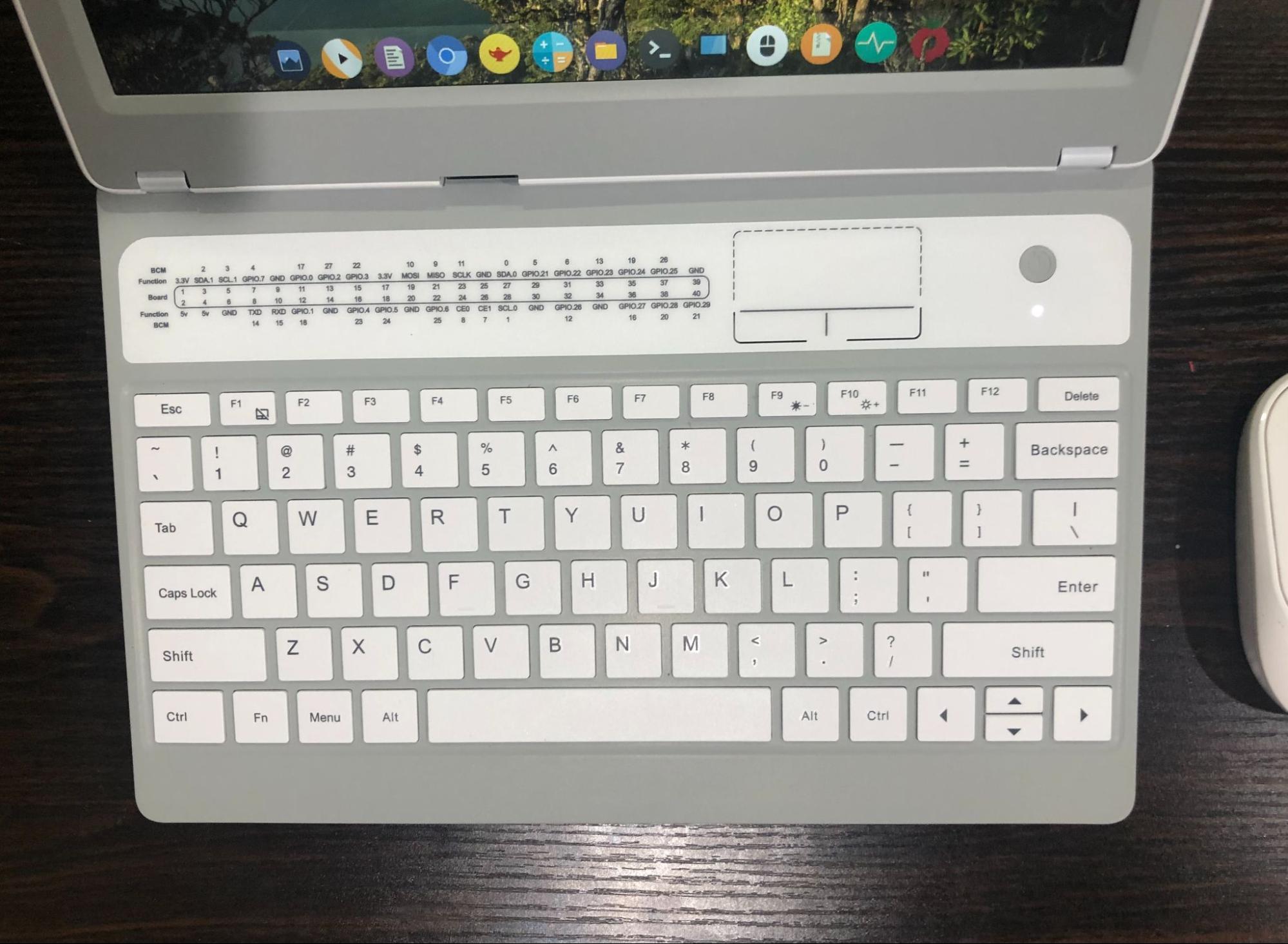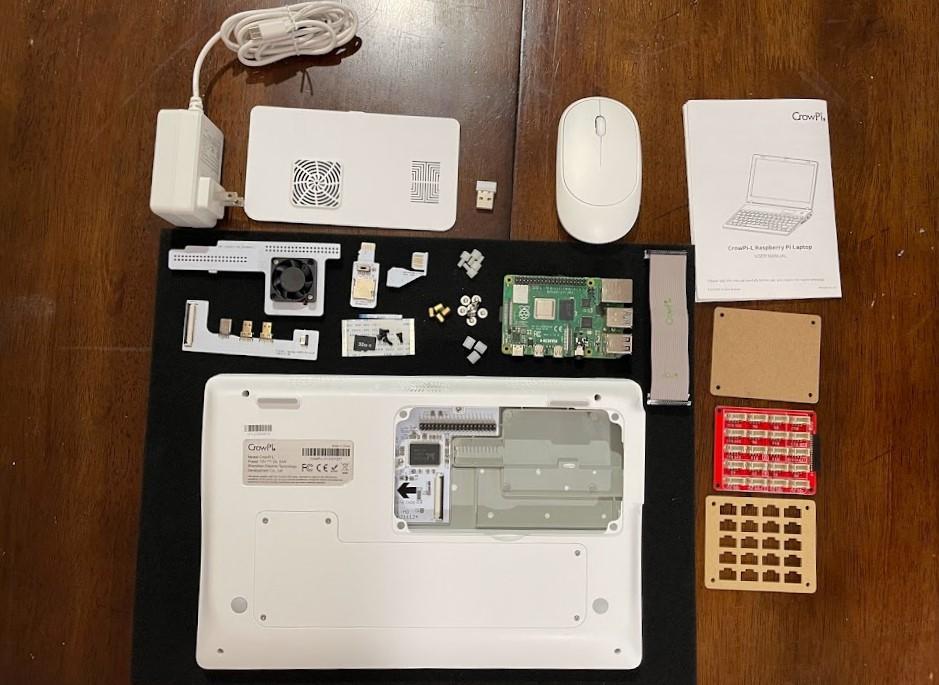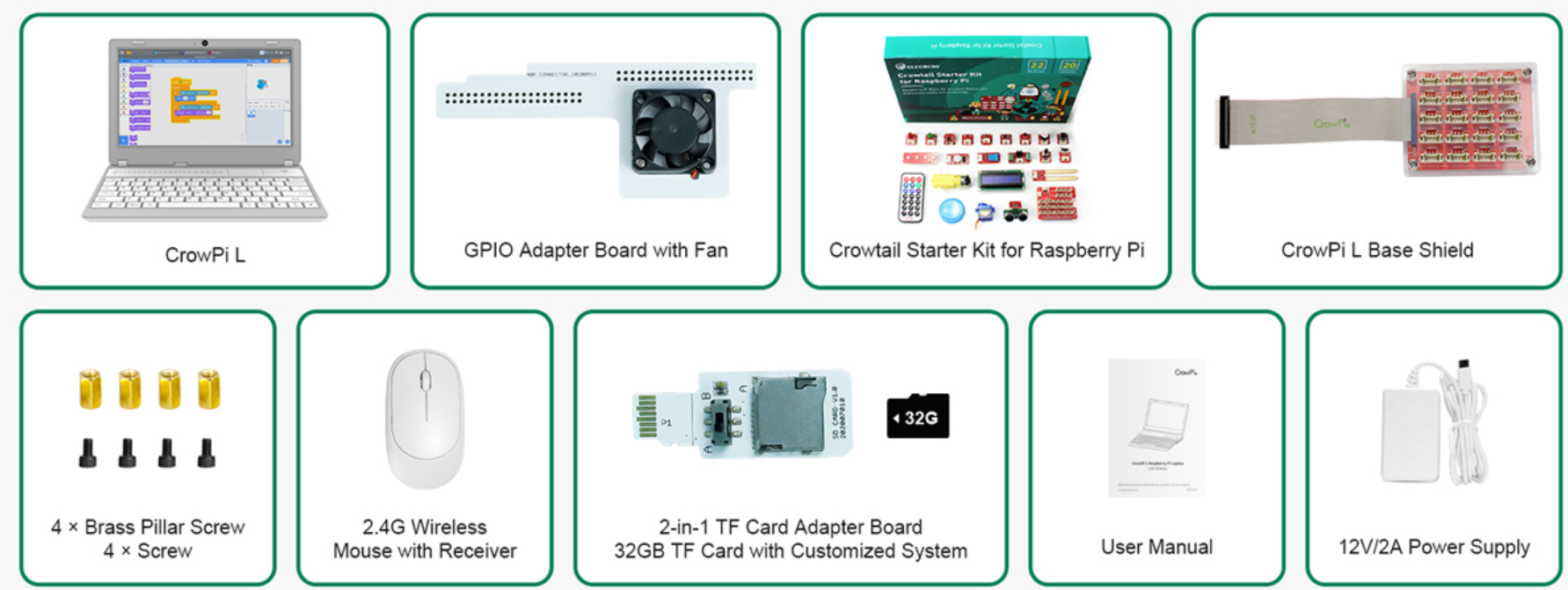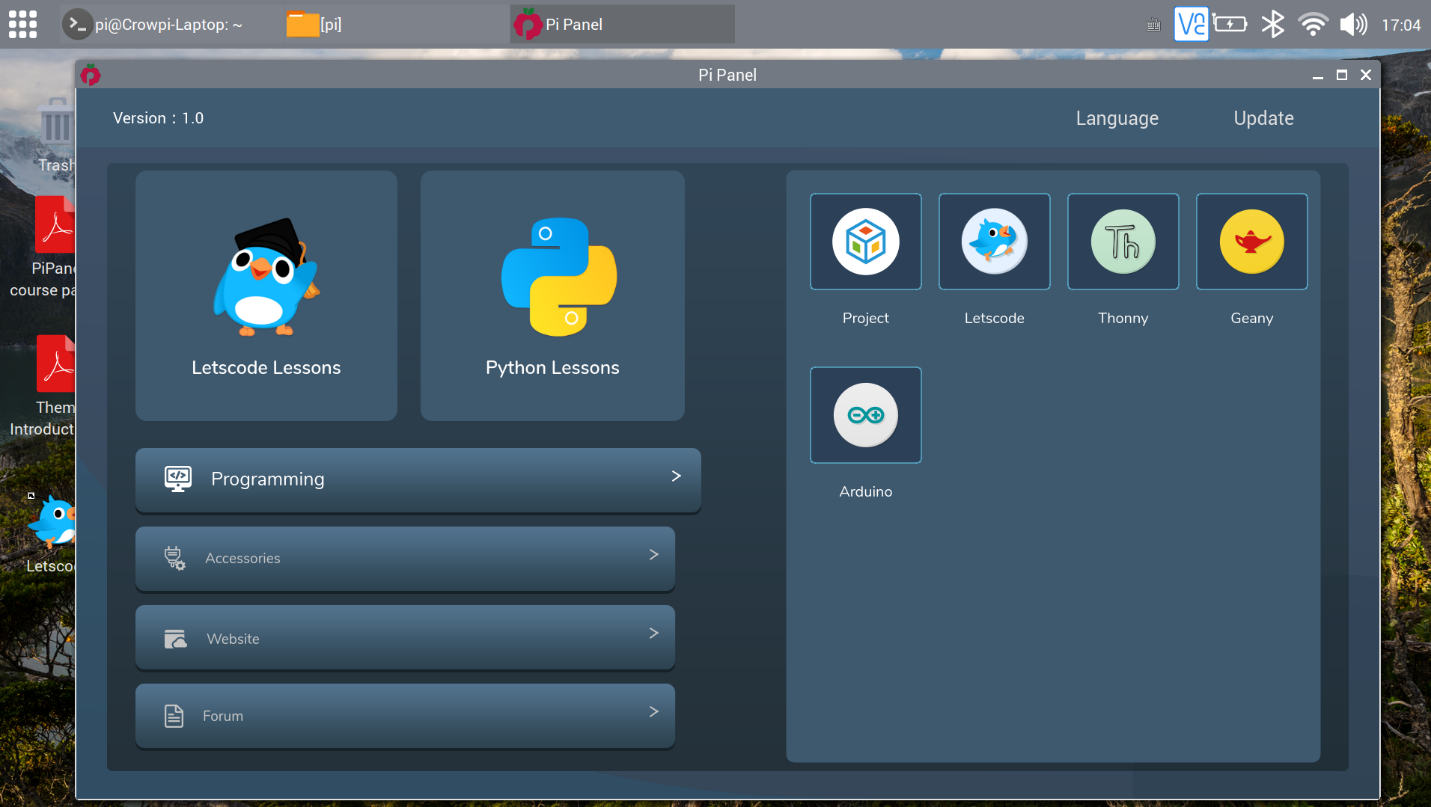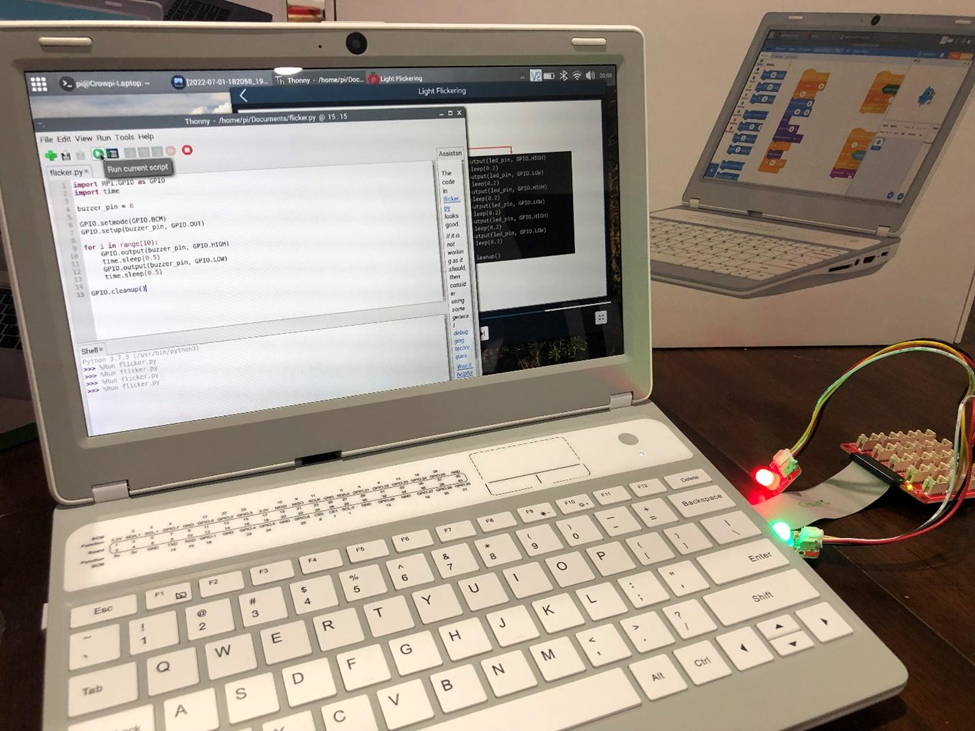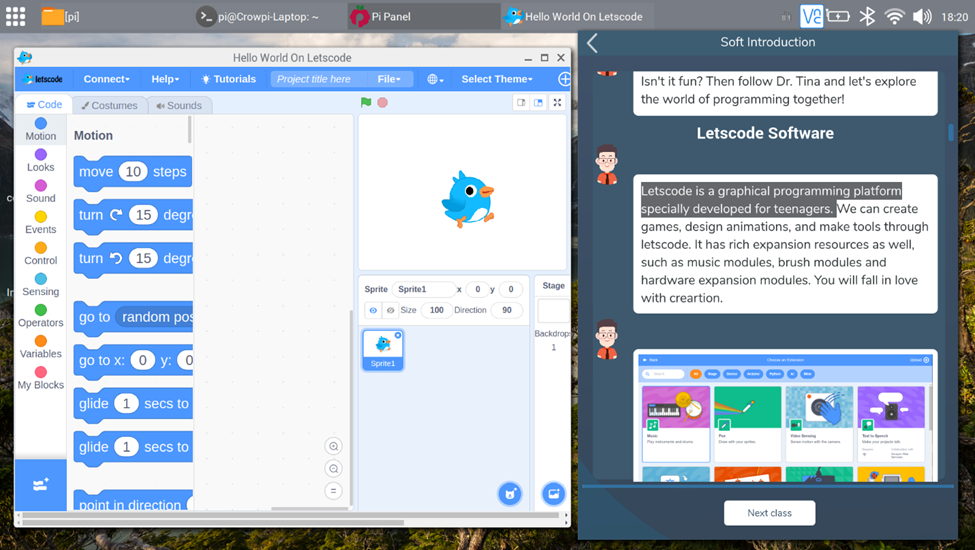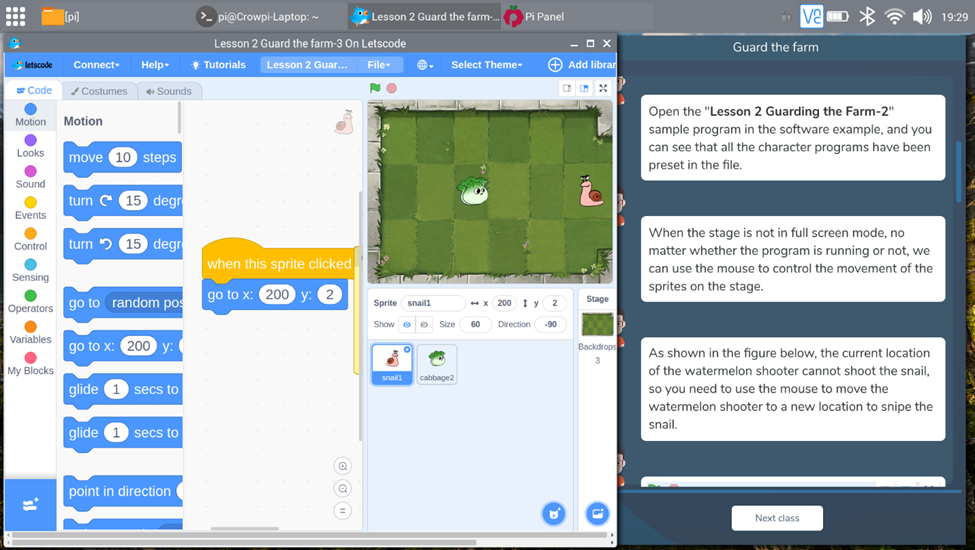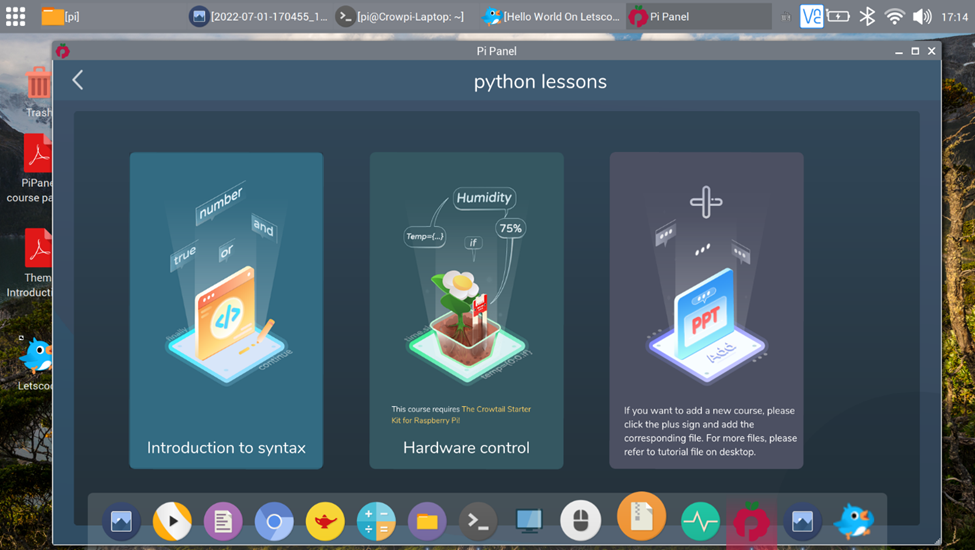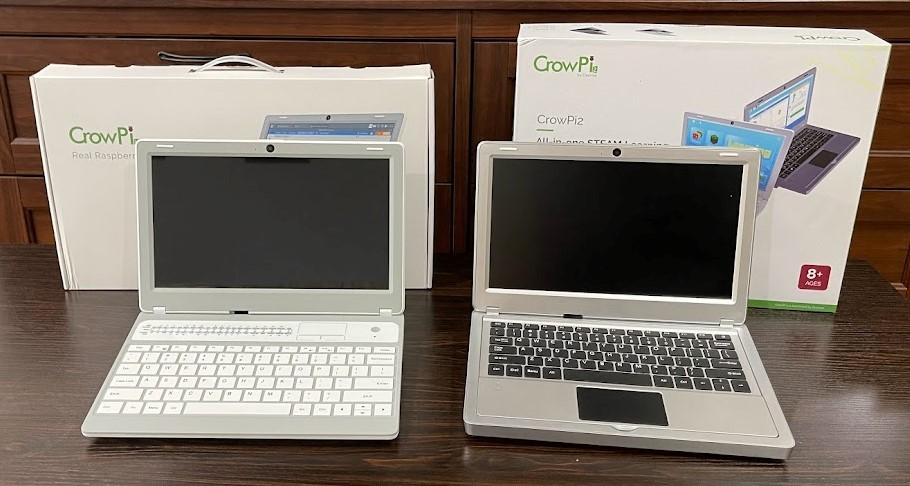Tom's Hardware Verdict
The CrowPi L is a powerful Raspberry-Pi powered laptop and effective STEM kit for kids, but you’ll need to pay a premium to take advantage of the available hardware tutorials the system has to offer.
Pros
- +
Built-in internal battery
- +
Easy to follow Scratch-based and Python tutorials
- +
Fun game design programming lessons and hardware projects
- +
External monitor and dual-boot system support
Cons
- -
Doesn’t work with Raspberry Pi 3 and older
- -
Sensors and controllers needed for hardware projects are not included in the basic kit
- -
Some tutorials have unclear instructions
Why you can trust Tom's Hardware
Prime Day Deal - CrowPi L Raspberry Pi 4 Laptop: was $279, now $223.20 at Amazon
The CrowPi range of Raspberry Pi portables is a fun and convenient way to work on your Raspberry Pi projects. The new CrowPi L has an 11.6-inch screen (1366 x 768 resolution) and a three-hour battery life. The CrowPi L is designed for the Raspberry Pi 4 (not included) and provides connections for the GPIO and external devices.
The CrowPi L is a Raspberry Pi-powered laptop built to educate, engage and entertain young minds and usher them into the world of programming and electronics. It incorporates fun activities and interactive lessons to teach kids how to code. The kit includes lots of tutorials to try and a wide range of projects that would appeal to a variety of different interests. From lessons on how to design and program games, to hands-on projects that explain electronic concepts and how circuitry works, there’s a lot for kids to learn and enjoy.
Starting at $239 (currently on sale for $203), the CrowPi L comes with a USB wireless mouse, a 32 GB microSD card loaded with the custom OS, educational software, and a custom GPIO expansion shield for hardware projects.
Pricing and Availability
The CrowPi L is available in a few different configurations. You can choose from the basic model or advanced model, which costs about $60 more because it includes the Crowtail Starter Kit for Raspberry Pi. Shipped in a separate box, this kit contains the different motors and sensors you will need for the Letscode (Elecrow’s custom version of the Scratch programming language) and Python hardware projects.
The laptop only comes in matte white, but you have an option of getting either a white or black keyboard. On Elecrow’s site, you also have the option to add either a Raspberry Pi 4 4GB or 8GB to the purchase, should you not have your own.
Our review sample was an advanced model which came with a white keyboard and the Crowtail Starter Kit but did not include a Raspberry Pi.
We should note that the CrowPi L is not compatible with Raspberry Pi 3 or older, so if you do not have a Raspberry Pi 4 then you must include it as an add-on (or buy one elsewhere). The company claims to have included this option to help during the chip shortage. The price of the Raspberry Pi 4 is still way above its original MSRP, but Elecrow’s site sells it much cheaper than Amazon right now.
| Header Cell - Column 0 | Basic Model | Advance Model |
|---|---|---|
| Without Raspberry Pi | $239* | $299 |
| Add Raspberry Pi 4B - 4GB | $145 | $145 |
| Add Raspberry Pi 4B - 8GB | $157 | $157 |
*Elecrow is currently offering a 15% discount from their website, bringing down the most basic model to ~$200.
Get Tom's Hardware's best news and in-depth reviews, straight to your inbox.
Design of the CrowPi L
While the previous versions of the CrowPi came packed with built-in modules, the CrowPi L’s design has been simplified to look like a regular laptop. It has an all-white exterior with a light gray interior that surrounds the 11.6-inch display and white keyboard keys. It is a compact system that looks sleek and could nicely double up as a child’s first laptop.
At 11.46 x 7.5 x 1.8 inches, the CrowPi L is just the right size to fit on a child’s lap and is light enough (at a little over 2 pounds) for them to carry around. The plastic chassis feels very strong and solid. But it is not a quiet system. You can hear the fan humming underneath so you have to be careful not to put it in a place that will obstruct the airflow.
Unique to the CrowPi L is the 40-pin GPIO port slot located on the right side of the laptop. This is where you attach the custom expansion shield you can use for all the hardware programming projects in the kit. It is a cool feature but unfortunately only useful if you upgrade to the advanced model, purchase the Crowtail kit separately, or plan to do your own electronics projects using jumper cables.
The CrowPi L also has an HDMI port which you can use to attach another monitor for additional screen real estate. I found this to be a very useful feature since the tutorials themselves take up half the space of the screen and you are left with such a tiny space for the coding apps. This is especially true for the Letscode app which uses drag-and-drop blocks to code. I found myself constantly using the slider at the bottom to see the blocks.
And although it is not intended to be a powerful productivity laptop, you can still use the CrowPi L to perform regular tasks such as browsing the internet, writing documents, watching videos on YouTube, or joining video conference calls. There are also pre-installed games that you can play at your leisure.
Keyboard on CrowPi L
The CrowPi L has a built-in keyboard that you can customize with either black or white keys. Our sample came with white keys. The layout of the keyboard with the tiny trackpad placed above the keys proved to be more than an inconvenience and oftentimes an annoyance. This is where the included wireless USB mouse was not only useful but necessary in order to use the laptop efficiently.
Display on the CrowPi L
The CrowPi L has an 11.6-inch IPS screen with 1366 x 768 resolution. Although some Chromebooks like the Samsung Chromebook 4 have the same resolution display, it feels like a step down from CrowPi2’s 1080p display. The screen resolution was sufficient when we followed along with coding lessons, but more real estate for apps and code would have been helpful.
Like all Raspberry Pi-powered devices, playing YouTube videos can be a little frustrating. We noticed lag when streaming videos in 720p. We also tried watching a livestream of The Pi Cast at 1080p and experienced occasional stuttering on the screen, and also had audio and video sync problems especially when we tried to watch the video in full screen.
Battery on the CrowPi L
The CrowPi L comes with a built-in battery that should last for three hours. Compared to regular laptops today, that’s not a very long battery life, but it is enough to try an activity or two without being plugged in to the wall. We did find that the battery lasted about three hours (sometimes longer) when we were only using it for going through the various lessons and tutorials. Naturally, the battery did not last as long when we used it to watch videos on YouTube or when we were using an external monitor. You should be plugged in when doing those activities anyway.
Software/Operating Systems on the CrowPi L
Having access to two operating systems on MicroSD cards, swappable via the toggle switch, is convenient and provides additional storage access if desired.
In addition to the included custom OS, CrowPi L supports other OSes including Raspbian, Ubuntu, CentOS, Windows IOT, Kali, Pidora, ArchLinux, FreeBSD, Kodi, OpenWrt, RISC OS, RetroPie, LAKKA, Recalbox, LibreELEC, and OSMC.
Specifications
| Compatibility | Compatible with Raspberry Pi 4B 4GB or 8GB |
| Display | 11.6-inch, 1366 x 768 resolution, IPS screen |
| Networking | Raspberry Pi ethernet port |
| Ports | Right Side: HDMI, 40-pin GPIO port, USB-C, 3.5mm headphone jack |
| Left Side: Ethernet Port, 3x Raspberry Pi USB ports | |
| Camera | 2MP camera with built-in microphone |
| Battery | Built-in 5V USB-C |
| Power Adapter | 12V DC |
| Dimensions (WxDxH) | 291 x 190 x 46mm (11.46 x 7.5 x 1.8 inches) |
| Weight | 1.1kg (2.4 pounds) |
| Warranty 1 Year | Row 10 - Cell 1 |
Assembly
Once you take the CrowPi L out of the box, the first thing that you will need to do is install your Raspberry Pi. As previously mentioned, the CrowPi L is only compatible with Raspberry Pi 4 models, which you can order with your kit if you don’t already have one handy. The kit includes all the rest of the components that you need for assembly: 4x screws, 4x pillars, GPIO adapter board with fan, 32 GB MicroSD card with custom OS installed, and a 2-in-1 system adapter board (where you insert an additional MicroSD card).
Assembling the CrowPi L was pretty straightforward and was a relatively painless process. The small, folded manual it ships with came in handy and was surprisingly easy to follow.
We did have some minor issues getting the system to boot the first time, but it turned out that the HDMI expansion board was not properly attached to the Pi. So be sure that all components are flush against the board after installation. You should also make sure that you set the dual system toggle switch prior to power-up to boot the OS you wish to use, preferably CrowPi’s custom OS which has the lessons built-in.
Learning With CrowPi L
As soon as you power up the system with the custom OS, the Pi Panel window will open, serving as the entry point for the CrowPi L programming lessons which are divided into two categories: Letscode and Python. The kit supports multiple apps or IDEs such as Arduino, Geany, and Thonny.
Letscode and Python lessons start with teaching basic functions and operations which include exercises to apply them. The lessons progressively get more challenging through the course. But, if you have previous knowledge using Scratch (which is what Letscode is based on) or Python, you can also set your own pace and start from anywhere or skip lessons as you please. This was not the case in CrowPi2 where you could not advance to the next lesson unless you completed the previous one, so it is a welcome change.
If you have the Advanced Kit, as we did, you can choose from any of the 24 available hardware projects to follow along with and modify the code to create your own programs. Here you would need to attach the GPIO expansion shield board to the 40-pin GPIO port slot that is available in CrowPi L.
Because Letscode is block-based there is no actual coding involved and it is easy for even younger kids to learn and follow. Although the program instructions state that this was developed for teenagers, my eight-year-old daughter was able to follow along and get through the first few software programming lessons quite easily.
The focus on game design to teach coding is a winning strategy that appeals to both kids and teens. It was something that piqued my daughter’s interest and she was eager to try out the software programming lessons.
In the Guarding the Farm game, she had fun modifying the code to change the speed at which a snail gets to a cabbage. She also liked being able to animate the sprites by going through the different “costumes” available in Letscode. She even tried to add more characters to her version of the game. Not everything she tried worked out as she planned, but troubleshooting is all part of the process of programming, and it is wonderful to see how the lessons were engaging her and honing her critical thinking skills as she progressed through the project.
The Python software lessons offered a bit more difficulty which my 14-year-old appreciated. She said she enjoyed learning about basic Python functions, importing libraries, and proper command syntax. When she took a stab at creating her own version of the game Gluttonous Snake, she mentioned having difficulty understanding some of the instructions in the tutorial, but again, with a bit of troubleshooting and trial and error she was able to resolve those on her own. There’s definitely room for Elecrow to make these tutorials more helpful.
She also tried going through a few of the hardware projects like the Flickering Light and Siren. As an independent exercise, she wanted to write a simple program using the LED sensors to send a message using morse code which we both thought was really neat. I could tell that she enjoyed playing around with the different sensors slightly more than programming the games.
Luckily, CrowPi L offers a variety of projects and activities that appeal to a wide range of children. Both of my daughters — despite being in different age groups, at different programming skill levels, and having different interests — found things that connected with them.
Bottom Line
There is no time like the present to bond with your kids and engage with them in worthwhile activities that will stimulate their creativity and help them learn useful skills like coding while having fun. The CrowPi L provides both the learning and the enjoyment of spending time with them. Despite some minor improvements needed in the documentation, you’ll find the Letscode and Python tutorials perfect for sparking imagination and learning.
As an educational platform, the CrowPi L is an effective tool to introduce kids and even adults who want to learn the basic concepts of programming and electronics. The CrowPi L is available for purchase directly from the Elecrow website at $239 for the basic model, but in order to fully take advantage of all this Raspberry Pi-powered laptop has to offer, you need to dole out that extra dough and get the Crowtail Kit ($60) and a Raspberry Pi 4 if you don’t already have one.
Aside from Elecrow, no other company makes Raspberry Pi-powered Laptop kits that include a comprehensive programming package. Alternatively, the company’s CrowPi2 (priced at $315) could be an option for you if you prefer the convenience of having the modules and sensors built inside the kit.
But if you love the real laptop look and feel, the CrowPi L is packed with features and learning opportunities, designed to take any child’s STEM learning to the next level.

Anj Bryant is the Assistant Managing Editor at Tom's Hardware. She provides content layout and development support, and coordinates editorial initiatives for all the talented groups of freelancers, contributors, and editors in the team.
